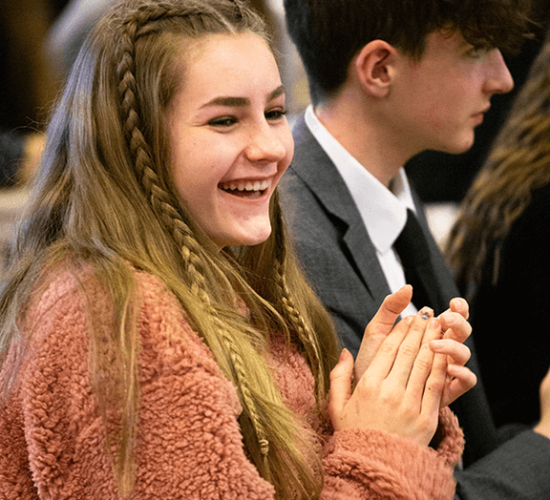
Our daily routines and educational practice are rooted in the twin values of Dignity and Respect.
Our vision for teaching and learning is rooted in high expectations and an unconditional belief that every child can achieve and succeed according to their unique abilities. We believe in challenge, engagement and deep learning (mastery). This is promoted through careful planning, clear learning intentions and responsive teaching. Behaviour for learning is central to our vision, as we strive for a warm and productive classroom climate, which embeds dignity and respect for all. We strongly believe in the power of sharp formative (and summative) assessment, and promote this through carefully considered dialogue with our students. Teaching and learning mirrors our wider values, with an irrefutable devotion and care for the education of young people, both within and beyond the classroom. It is our aim for all teachers to deliver consistently outstanding lessons and to relish the challenge of striving to do so.

To assist with the ease of transition for new Year 6 students, we asked some of our current Year 7s to tell us about their experience during the transition.
We believe strongly that good quality educational research should help inform decisions taken around teaching and learning. Below are some principles that we align with from the world of research: